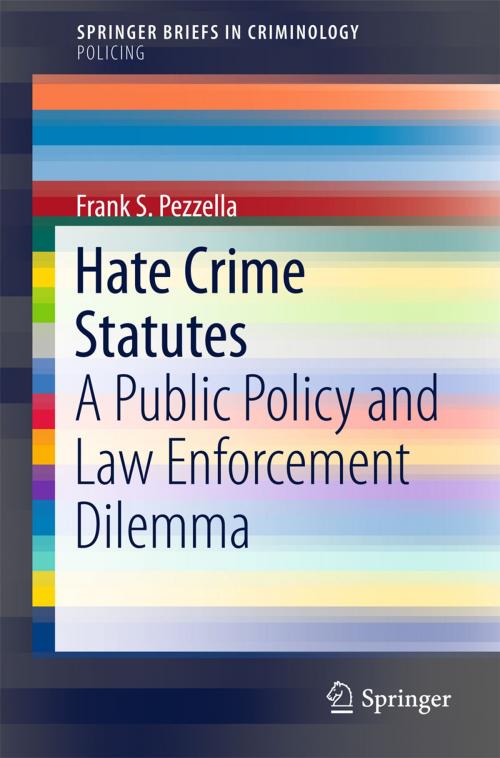Hate Crime Statutes
A Public Policy and Law Enforcement Dilemma
Nonfiction, Reference & Language, Law, International, Social & Cultural Studies, Social Science, Crimes & Criminals, Criminology| Author: | Frank S. Pezzella | ISBN: | 9783319408422 |
| Publisher: | Springer International Publishing | Publication: | July 28, 2016 |
| Imprint: | Springer | Language: | English |
| Author: | Frank S. Pezzella |
| ISBN: | 9783319408422 |
| Publisher: | Springer International Publishing |
| Publication: | July 28, 2016 |
| Imprint: | Springer |
| Language: | English |
This Brief provides a clearly outlined and accessible overview of the challenges in creating and enforcing hate crime legislation in the United States. As the author explains, while it is generally not controversial that hate crime behavior should be stopped, the question of how to do so effectively is complex.
This volume begins with an introduction about defining hate crimes, and the history of hate crimes and hate crime legislation in the United States. The author shows arguments in favor of hate crime statutes, for example: hate crimes reach beyond their victims to members of the victims’ protected group and cohesion of society at large, and should therefore carry higher penalties.The author also shows arguments against hate crime statutes, for example that they sometimes contain enhanced penalties for certain specially protected groups and not others, and have a high potential for ambiguity and uneven enforcement. From a law enforcement perspective, the author explores the practical challenges in enforcing these statutes, and solutions to address them. Investigative techniques and resources vary significantly across police departments, as does training to identify and distinguish hate crimes from ordinary crimes. There is high potential for law enforcement and prosecutors’ personal biases to effect the classification of crimes as hate crimes. Law enforcement organizations are constantly faced with the dilemma of what and how to enforce legislation.
This brief will be relevant for researchers in criminology and criminal justice, policy makers involved in hate crime legislation, social justice, and police-community relations, as well as related fields such as sociology, public policy and demography.
This Brief provides a clearly outlined and accessible overview of the challenges in creating and enforcing hate crime legislation in the United States. As the author explains, while it is generally not controversial that hate crime behavior should be stopped, the question of how to do so effectively is complex.
This volume begins with an introduction about defining hate crimes, and the history of hate crimes and hate crime legislation in the United States. The author shows arguments in favor of hate crime statutes, for example: hate crimes reach beyond their victims to members of the victims’ protected group and cohesion of society at large, and should therefore carry higher penalties.The author also shows arguments against hate crime statutes, for example that they sometimes contain enhanced penalties for certain specially protected groups and not others, and have a high potential for ambiguity and uneven enforcement. From a law enforcement perspective, the author explores the practical challenges in enforcing these statutes, and solutions to address them. Investigative techniques and resources vary significantly across police departments, as does training to identify and distinguish hate crimes from ordinary crimes. There is high potential for law enforcement and prosecutors’ personal biases to effect the classification of crimes as hate crimes. Law enforcement organizations are constantly faced with the dilemma of what and how to enforce legislation.
This brief will be relevant for researchers in criminology and criminal justice, policy makers involved in hate crime legislation, social justice, and police-community relations, as well as related fields such as sociology, public policy and demography.















